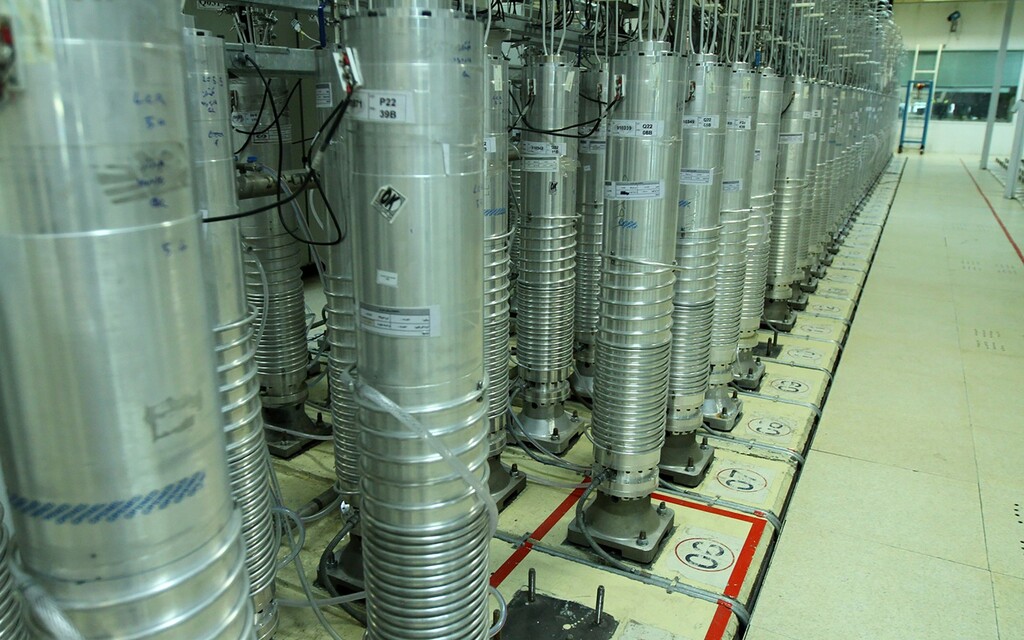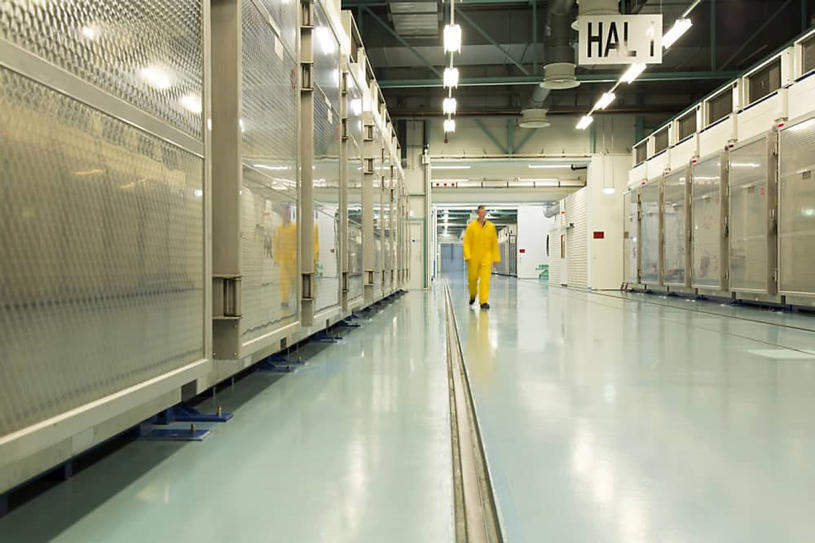Getting your Trinity Audio player ready...
Could Israel destroy Iran’s nuclear program if it wanted to? And if Israel chose to attack Iranian nuclear facilities, would it be effective?
Several experts say the outcome may not be what the Israeli public hopes for. An attack on Iran’s nuclear facilities could strengthen Iran’s resolve to acquire a nuclear weapon rather than eliminate its capability, says James Acton, co-director of the Nuclear Policy Program at the Carnegie Endowment for International Peace.
“They play, you play,” said Tel Aviv University Professor Eyal Zisser. “You try not to cross a line. When the line is crossed, it’s total war. We have to consider what the repercussions would be.”
Iran does not yet have a nuclear weapon, but it has operated a civilian atomic energy program for over five decades. Analysts believe Iran could produce enough enriched uranium and the necessary components to build a nuclear weapon in a relatively short time. However, this doesn’t mean Israel can –or should – target Iran’s nuclear program the way it did with Iraq or Syria.
Iran’s nuclear program relies on centrifuges rather than nuclear reactors, which are used to enrich uranium, James Acton explains. These are the same types of centrifuges that fuel power reactors. Centrifuges are small, about 20 centimeters to 30 centimeters in diameter, and one meter to two meters tall. Acton says Iran has at least a few thousand of these at two main sites: Natanz and Fordow.
This situation is very different from Israel’s attacks on Iraq’s Osirak reactor in 1981 and Syria’s reactor in 2007. In those cases, the nuclear weapons programs were concentrated in a single, large facility centered around one reactor, which had required significant resources and investment to build. As a result, destroying those reactors effectively dismantled the entire nuclear program. The Osirak strike set Iraq’s nuclear ambitions back by at least a decade, while Syria, due to its ongoing civil war, has not been able to rebuild.
Acton explains that Iran would likely respond by relocating any new facilities deeper underground or even hiding centrifuge operations in regular, unmarked industrial buildings in plain sight. As a result, Israel would have to continuously track and detect these sites, potentially launching new strikes every year or two.
“While an Israeli strike can dent its capabilities in the short term, it can’t remove those capabilities in the long term,” according to Acton.
Regarding the two known facilities – though there may be additional clandestine sites – Natanz consists of a large underground facility housing around 50,000 centrifuges and a smaller facility at ground level. Acton estimated that the underground facility is no more than 10 meters deep. In contrast, the Fordow facility is buried within a mountain, likely 60 meters to 80 meters underground. Given this, there is considerable evidence suggesting that Israel lacks the capability to destroy Fordow.
2 View gallery


centrifuge machines in the Natanz uranium enrichment facility in central Iran
(Photo: AP)
Acton explains that Israel would need the U.S.-developed Massive Ordnance Penetrator (MOP) for such a mission. However, even if the U.S. were willing to provide Israel with the weapon, there would only be a practical way to deliver it to Iran with U.S. assistance. The MOP, over 20 feet long, is much larger than other bunker busters and penetrates deeper than any conventional alternative.
Professor Hooshang Amirahmadi, president of the American Iranian Council and a professor at Rutgers University, suggested an alternative: using an Azerbaijani airbase near western Iran to get closer to the target. However, despite Israel’s strong ties with Azerbaijan, the country has never publicly agreed to such a plan, and Amirahmadi doubts it would allow Israel to do so.
As such, unless Israel can carry out a cyberattack or find another method to disrupt Fordow, it will likely have to hold off without full US support.
Even if attacking Iran’s nuclear facilities were possible, it might not be the best course of action, according to Acton. Although U.S. Secretary of State Antony Blinken said in June that Iran could produce enough fissile material for a weapon in “one or two weeks,” the country would still need to take additional steps to turn this material into a functional weapon.
Acton explains that he believes Iran is aiming to have the capability to build a nuclear weapon quickly but has not yet decided to actually produce one.
“An Israeli strike makes it much, much more likely that it will make the decision to do so,” Acton says. He added that if Iran acquires a nuclear weapon, it would feel significantly more emboldened.
“One can imagine an Iran more willing to strike Israel and target civilians with ballistic missiles, potentially in larger numbers,” and using its proxies more openly,” he says. “I think a nuclear-armed Iran is a pretty bad prospect for Israel.”
Iran's Supreme Leader Ali Khameini addresses the Iranian public
Both Acton and Amirahmadi agree that diplomacy is a better option and likely the one the US would prefer over a risky military response. Israeli action without U.S. support could strain the relationship between the two countries.
“The U.S. has already said it does not like the idea of Israel attacking Iran’s nuclear facilities because it thinks it can stop enrichment in Iran through negotiations, just like they did last time,” according to Amirahmadi.
In 2015, Iran signed the Joint Comprehensive Plan of Action (JCPOA) with China, France, Germany, Russia, the United Kingdom and the United States. However, the US unilaterally withdrew from the agreement in 2018. Acton believes another deal could be reached – perhaps not as sophisticated as the original JCPOA, but one that could still verifiably keep Iran short of developing a nuclear bomb.
Acton notes that the U.S. would likely need to lead such an initiative, though another country could publicly take the lead while the US provides sanctions relief as part of the deal. He also expressed concern that diplomacy might be abandoned altogether if former President Donald Trump returns to office. On the other hand, he is “not optimistic” that Vice President Kamala Harris, if elected, would prioritize such a deal, although she is “temperamentally much more inclined to reach an agreement. ”
Alternatively, Israel could choose to target Iran’s oil infrastructure, which might have an even greater impact, Amirahmadi said.
“What Iran is really concerned about is not that Israel will hit its nuclear program,” Amirahmadi explained. Instead, he said, a strike on the country’s oil supply and shipping infrastructure “will certainly escalate this conflict” and could even lead to regime change because it would “stop Iran from functioning economically.” However, he cautioned that if such a strike were to happen, “you could not control Iran because Iran will feel very lost.”
Get the Ynetnews app on your smartphone:






